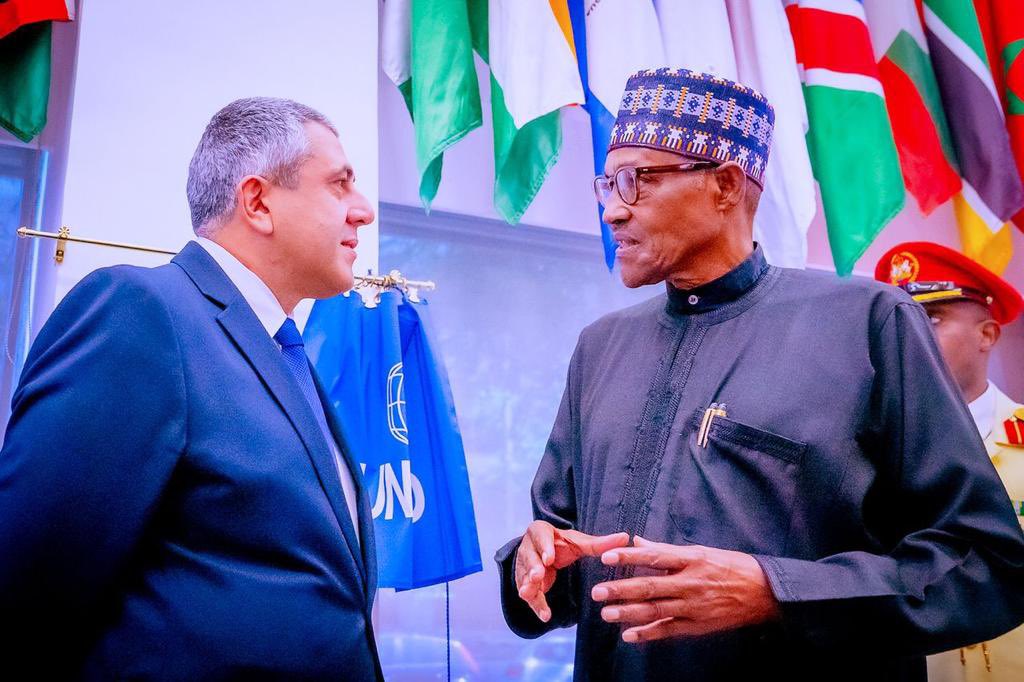Business
FG Targets N250bn From Excise Duty

The Federal Government has projected to raise the sum of N250.09billion from excise duty in 2023, findings has revealed.
According to a document obtained on 2023 fiscal framework, the Federal Government targeted N98.53billion from excise duty in 2021 and N161.7billion in 2022.
This shows that the government revenue target from excise duty rose by 153.82 per cent in two years and 54.66 per cent in one year.
It was reported in November last year that the Federal Government plans to introduce more taxes and cut down on tax incentives in 2023 through the proposed 2022 Finance Bill.
However, experts and organisations have kicked against the government introducing more excise tax.
The carbonated soft drinks Group of the Manufacturers Association of Nigeria (MAN) in December, last year, said the Federal Government’s claim to add a 20 per cent Ad-Valorem Excise Tax on carbonated soft drinks in a bid to raise taxes for investment into health is misleading.
According to the group, the cost of carbonated drinks will go higher if there is an additional excise tax and this has multiplier effects.
It stated that while controlling sugar consumption is essential, raising taxes is not the solution.
The Centre for the Promotion of Private Enterprises(CPPE) recently said the imposition of excise duty on all services will affect the business community negatively.
The CPPE CEO, Muda Yusuf, noted that the provisions of the new finance bill are too broad, inexact and wide-ranging and “makes the business community very vulnerable.
“There is no jurisdiction around the world where all services are liable to excise duty. Excise duties are typically specific and selective, and often imposed to disincentivise consumption or production of particular product groups”.
Expressing concerns over the heavy taxation burden on companies and the service sector, Yusuf stated, “We are concerned that companies in the service sector are already paying huge taxes in the form of company tax which is currently at 30per cent, tertiary education tax at 2.5per cent, NITDA levy at one per cent, NASENI levy at 0.25per cent, Police Trust Fund Levy at 0.005per cent and withholding tax on profit distribution at 10 per cent.
“All the taxes are percentages of company profit. Additionally, there are numerous taxes and levies imposed by state governments”.
Transport
Nigeria Rates 7th For Visa Application To France —–Schengen Visa

Transport
West Zone Aviation: Adibade Olaleye Sets For NANTA President

Business
Sugar Tax ‘ll Threaten Manufacturing Sector, Says CPPE

In a statement, the Chief Executive Officer, CPPE, Muda Yusuf, said while public health concerns such as diabetes and cardiovascular diseases deserve attention, imposing an additional sugar-specific tax was economically risky and poorly suited to Nigeria’s current realities of high inflation, weak consumer purchasing power and rising production costs.
According to him, manufacturers in the non-alcoholic beverage segment are already facing heavy fiscal and cost pressures.
“The proposition of a sugar-specific tax is misplaced, economically risky, and weakly supported by empirical evidence, especially when viewed against Nigeria’s prevailing structural and macroeconomic realities.
The CPPE boss noted that retail prices of many non-alcoholic beverages have risen by about 50 per cent over the past two years, even without the introduction of new taxes, further squeezing consumers.
Yusuf further expressed reservation on the effectiveness of sugar taxes in addressing the root causes of non-communicable diseases in Nigeria.
-

 News3 days ago
News3 days agoDon Lauds RSG, NECA On Job Fair
-

 Niger Delta2 days ago
Niger Delta2 days agoPDP Declares Edo Airline’s Plan As Misplaced Priority
-

 Sports2 days ago
Sports2 days agoSimba open Nwabali talks
-

 Nation2 days ago
Nation2 days agoHoS Hails Fubara Over Provision of Accommodation for Permanent Secretaries
-
Niger Delta2 days ago
Stakeholders Task INC Aspirants On Dev … As ELECO Promises Transparent, Credible Polls
-
Niger Delta2 days ago
Students Protest Non-indigene Appointment As Rector in C’River
-

 Oil & Energy2 days ago
Oil & Energy2 days agoNUPRC Unveils Three-pillar Transformative Vision, Pledges Efficiency, Partnership
-
Rivers2 days ago
Fubara Restates Continued Support For NYSC In Rivers

